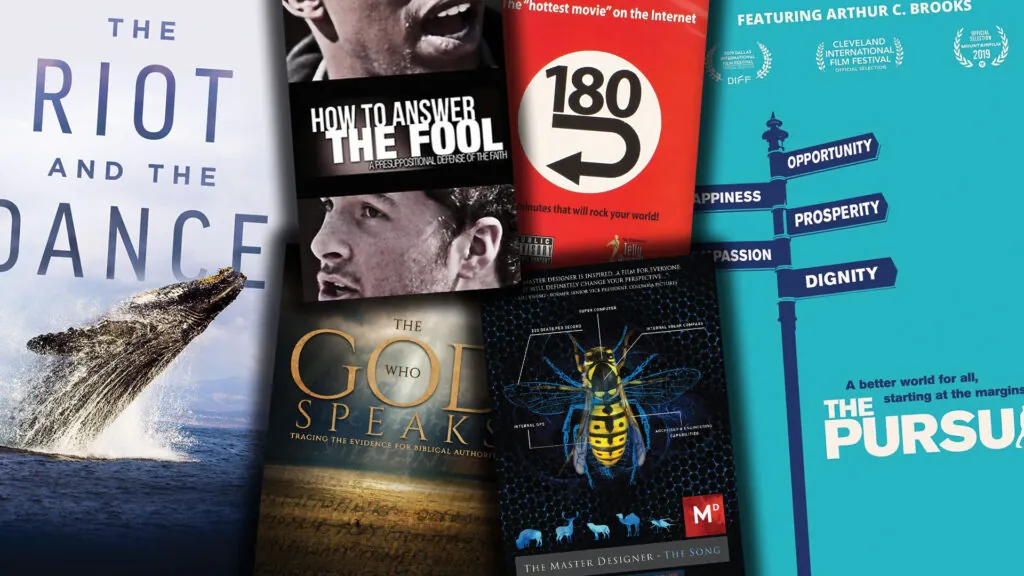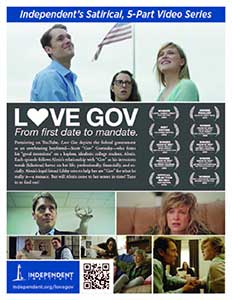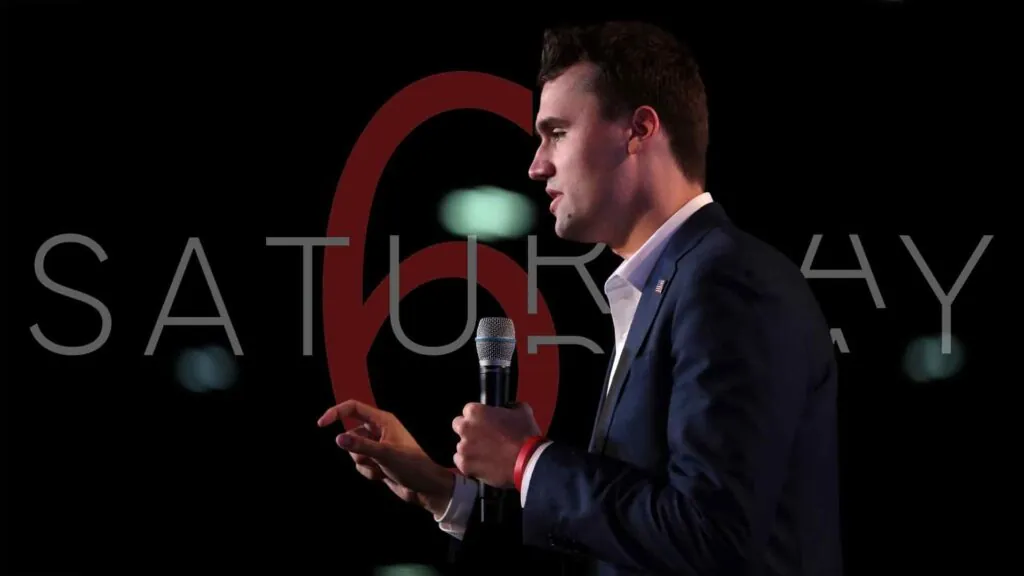
Articles, Documentary, Watch for free
12 free must-see docs for Christian families
Documentaries aren’t your thing? Then you haven’t seen these. We’ve got brilliant scholars and scientists sharing, in just a line or two, all their study, and the many books they’ve read or written. And we get videos and pictures of birds, planets, or our own insides, that we’d never see like that on our own.
Six categories each have two “winners” to create this "Top 12" list, but I’ve cheated a bit by sneaking in some honorable mentions. All the films can be watched for free online, and you can click on the documentary titles for longer reviews.
6-DAY CELEBRATED
Some creationist videos limit themselves to beating up evolution, and while that can be fun and valuable – we are called to destroy false arguments (2 Cor. 10:4-5) – the best sort celebrate the truth of God’s Word and the genius of His design.
The Riot and the Dance: the TV series
2022- / 30 minutes
RATING: 9/10
The folks who brought us Riot and the Dance: Earth and Riot and the Dance: Water now have a TV series, and you can watch the pilot episode for free. It’s God’s creation viewed through the eyes of a poet and an adventurer. Narrator Dr. Gordon Wilson shares that while he teaches a marine biology class, he “needed to go back to school for this film – scuba school!” Why? “I don’t want to just sit back and narrate over some pretty picture. I wanted to get as close as I can to as many divinely crafted underwater miracles as possible.” Dr. Wilson can’t help but gush: “I love turtles, their eyes, their beaks, their scales like tiles on a fancy floor. What hilarious cartoon characters they are, and what a fantastic cartoonist God is.” This is just geeky cool!
Is Genesis History?
2017 / 100 minutes
RATING: 8/10
Del Tackett is best known for his excellent Truth Project video series, and this is every bit as good. He interviews PhD-holding scientists with various areas of expertise, all of them happy to share why their field of study backs a literal understanding of the first few chapters of Genesis.
This is among the best creationist documentaries ever made, filled to the brim with heartfelt, concise, deep discussion!
When that leaves you wanting more be sure to explore their YouTube channel and IsGenesisHistory.com for extras they just couldn’t fit in the film.
HONORABLE MENTION: Remember all those cutesy story bible ark depictions that had the giraffes sticking their necks out of the top windows? No wonder many people – Christians included – are skeptical of the Bible’s Flood account. But as Tim Lovett shows in Noah’s Ark: thinking outside the box (2008/35 minutes), the ark’s dimensions have more in common with a modern ocean-going oil tanker. Computer animation, large-scale models, and a generous dose of humor make this a documentary that parents and teens will both enjoy.
INTELLIGENT DESIGN
Intelligent Design (ID) proponents celebrate a Designer but purposely won’t mention who He is. It’s a familiar enough strategy for Christians in the public square: the world demands we leave God out of it, and for some reason we listen to them rather than Him (Ps. 96:3)! But while ID is afraid to go much beyond toppling evolution, that shouldn’t stop us from taking their findings and going further, giving credit to the Brilliant Triune Engineer.
The Master Designer: the song
2014 / 76 minutes
RATING: 8/10
I appreciated this documentary’s patience, keeping to just a half dozen animals, to allow the time to explore each one in some depth. It begins with the bee and its amazing ability to make honey. Did you know “It takes 556 bees flying a total of 55,000 miles to gather nectar from an astounding 2 million flowers to make a single pound of honey”? Though a bee has a brain the size of a seed, it’s a brilliant architect, with a hive’s hexagonal honeycomb structure maximizing storage capacity. Weirder and more wonderful, the bee communicates through the language of dance – yes, really! – wiggling this way and that to tell the other bees where the nectar is to be found. And we shouldn’t forget that honey itself is amazing in that it never spoils! And that’s just the first of the six critters we get to meet.
Revolutionary: Michael Behe and the mystery of the molecular machines
2016 / 60 minutes
RATING: 7/10
Revolutionary is about what a quiet professor did to get Darwinian evolutionists very, very upset with him. Michael Behe seems to believe in an old earth and that some sort of evolution may well have occurred. So why would Darwinians be so very disturbed by him? Because Behe doesn’t believe the world came about by chance. While studying the human cell he realized the microscopic machines within it are so intricate and complex it’s inconceivable they could have come about via only random mutation and natural selection. This is in part, a history of the ID movement, which Behe had a big hand in beginning. But the real “star” of the show is one of those “micro-machines” that so fascinated him: the bacterial flagellum motor that can manage 100,000 revolutions per minute. Behe is too quiet to keep kid’s attention, but he’s also an ID giant, and someone worth knowing.
HONORABLE MENTION: Michael Behe’s Science Uprising: a revolutionary case for Intelligent Design (2019-) series might be just the thing for teens. With 10 different short videos, just 6-10 minutes each, this comes in bite-sized chunks. And there’s still plenty to chew on here, with topics like “The myth of the Multiverse,” “Mutations break’ they don’t create,” and “No, you are not a robot made out of meat.”
ECONOMICS
Economics is a bigger spiritual battlefield than maybe most Christians realize. Just consider how, while God commands us not to covet our neighbor’s goods, those on the Left make envy out to be downright virtuous, peaking over the fence at what the millionaires and billionaires have. So, this often-neglected sphere is worth further study.
The Pursuit
2019 / 77 minutes
RATING: 7/10
The Pursuit is the story of one man’s search for the best way to lift the world’s poorest out of their poverty. And what the former French-horn player and current globe-trotting economics professor Arthur Brooks discovered is that it’s the free market that did this, that lifted literally billions out of extreme poverty.
So why would a Buddhist/Catholic former French horn player make a good guide for Christians interested in learning about economics, and the benefits of the free market? It’s because, as much as he might differ from us in big ways and small, his case for free trade is built on principles that line right up with Scripture. He doesn’t quote it, but his foundation is the Second Greatest Commandment (Matt. 22:36-40) – Brooks is clearly motivated by a love for his neighbor.
 Love Gov: Breaking up with government is hard to do
Love Gov: Breaking up with government is hard to do
2015 / 25 minutes
RATING: 8/10
An economic argument for small government presented as a comedic romance? Hmmmm… Alexis is thinking of quitting college to start her own business, but then she meets the strangely charming Scott Govinsky (known as “Gov” to his friends). Gov is so very caring and supportive. And eager to help. And he never seems to runs out of advice. Perfect material for a boyfriend? Alexis thinks so…at first. The problem is, Gov’s advice isn’t nearly as helpful as it seems.
Alexis’ new boyfriend Gov is a stand-in for our government, which wants to mind our business because it cares for us so deeply. But as much as the politicians and bureaucrats might mean well, that doesn’t mean they are doing well…which is what Love Gov tries to show. That’s a point worth sharing with our kids, and this series 5 short 5-minutes videos makes for quick viewing. But these are libertarians, not Christians, teaching the lesson here, so parental guidance is a must. Watch the whole 5 episode series here.
THEOLOGY
Theology is the study of God, and as the earth is the Lord’s and everything in it (Ps. 24:1) so, in a very real sense, all the other documentaries are theological too. But here it we get to learn more about God without anything distracting from our focus.
The God Who Speaks
2018 / 92 minutes
RATING: 9/10
The God Who Speaks makes the case that God still speaks to us today like He did with His prophets, doing so through Scripture. Alistair Begg, R.C. Sproul, Albert Mohler, Frank Turek, Kevin DeYoung, and Norman Geisler are some of the names here, all speaking to how the Bible attests to its own Divine origin. Really worth checking out!
The Marks of a Cult: a biblical analysis
2005 / 115 minutes
RATING: 8/10
How would you define a cult? What this documentary focuses on are religious groups that have some connections to biblical Christianity, but which have departed so far from it, that they are worshipping another God. The film offers Christians an easily understandable way of spotting those departures by using the four common math operations. As the host explains it, “A group can be classified as a cult when they:
1. Add to the 66 books of the bible…
2. Subtract from the triunity of God by either denying the personhood or the deity of one or more members of the Godhead
3. Multiply works necessary for salvation
4. Divide the loyalties of their followers from God…”
These math symbols are then used as the documentary’s four “chapters” and serve as logical breaks for any who might prefer to digest this 2-hour documentary in chunks.
PRO-LIFE
Is there a bigger tragedy in our age? Are there any victims more vulnerable, and more in need of someone to speak up for them? Here’s some help to get you ready.
Babies are murdered here
2014 / 54 minutes
RATING: 8/10
This is a must-see for anyone sitting on the sidelines. Where the film gets controversial is in the producers’ argument that we must name the sin that is going on behind clinic doors, using stark, clear terms, like “murder.” Do they want us shrieking it as women enter abortion clinics? Not at all. The men and women we see here witnessing are carrying large signs that read “Babies are Murdered Here” but there isn’t a hint of self-righteousness about them. They are clear, and generally pretty winsome too; truth is being coupled with grace. Their approach is comparable to pro-lifers who make use of large graphic pictures and pair that with soft-spoken words.
180: from pro-choice to pro-life in minutes
2011 / 33 minutes
Rating: 7/10
What kind of question would prompt a pro-choicer to become pro-life almost instantly? What street preacher Ray Comfort does here is confront people with the incoherence of their own views. When he asks them to explain what circumstances make it permissible to kill a baby, each of his interviewees is brought short. They don’t want to say we can kill a human being simply because they might grow up poor. Or because they are unwanted. Or because they are inconvenient. Their conscience convicts them with the knowledge that these are not good reasons to murder someone. By asking his pointed question Comfort makes them realize that they have never really thought through the issue of abortion before. Comfort’s approach will not work with any who have hardened their conscience. But for the ignorant or confused, what Comfort presents is incredibly clarifying.
HONORABLE MENTIONS: While Fearfully and Wonderfully Made (49 minutes) is little more than a PowerPoint lecture, it’s an amazing lecture, which is why it was for years, among Answers In Genesis’s top-selling DVDs. A Christian looking at their newborn might call the child a “little miracle” but Dr. Menton reveals the insufficiency of this description. There isn’t just one miracle involved in the conception and birth of a child – numerous miracles are involved at every stage, even before conception occurs. Any adult who gives it 15 minutes will want to stay for the rest of it, and will be sharing this link with all their friends!
Back 2019, to mark 50 years since Pierre Trudeau’s government first legalized abortion, pro-life organizations came together to make The Missing Project (75 minutes). It’s an important film, for the history lesson it provides, and for how it explains the division that exists among pro-lifers, between “abolitionists” and “incrementalists.” Who are these two camps? Abolitionists argue we can never settle for half measures – we need to push for a total ban on abortion. Incrementalists want this same end, but believe the best way forward is one step at a time. What’s missing from this film is any sort of explicitly Christian defense of the unborn. Our value, and everyone’s equality, can only be properly grounded in what we all share – being made in the Image of God (Gen. 9:6) – so that is a notable omission.
APOLOGETICS
We’re called to have a ready response to any who want to know about the hope we have (1 Peter 3:15) because of Jesus. How can we do that? What would it look like? Here’s a couple of masterclasses.
Collision
2009/ 88 minutes
RATING: 9/10
In May 2007, leading atheist Christopher Hitchens and pastor Douglas Wilson were asked by Christianity Today to dialogue on the question “Is Christianity good for the world?” They wrote six exchanges which were printed in the magazine and then, in 2008, compiled into a book. When the two men headed out to do an east-coast book tour, filmmaker Darren Doane tagged along. He captured their exchanges and interactions, both onstage in formal debate settings, and as they conversed over a pint of beer in the local pub. The end result is the most entertaining and enthralling debate you will ever see on film. This is a must see for its able demonstration of presuppositional apologetics. (Don’t know what that is? See the next documentary.) The attacks that Hitchens levels against God and Christianity are mimicked on secular campuses, so Wilson’s able defense of the faith will be instructive and will be an encouragement to our young people when they face these same attacks from their professors and fellow students. You can watch it on Facebook here.
How to Answer the Fool
2013 / 85 minutes
RATING: 8/10
While Wilson, in Collision, gives the better demonstration of presuppositional apologetics, Sye Ten Bruggencate gives the better explanation of it here. Some Christians will try to provide atheists with reasons for why they should believe in the Bible, and for why they should believe in God. In How to Answer the Fool, Ten Bruggencate teaches us to start with the Bible instead, and to present to the unbeliever the fact that it is only by acknowledging God, and the Bible as his Word, that the world makes any sense. Or to borrow from a C.S. Lewis analogy in Weight of Glory, this is believing in the Bible for the same sort of reason we believe in the sun. It’s not because we see it but because by it, we can see everything else.
HONORABLE MENTION: The Fool (2019 / 65 minutes) is the true story of how evangelist Ray Comfort was ridiculed by atheists the world over for a silly joke he made that fell flat. But God was using Ray’s humiliation: these same atheists started inviting Ray onto their shows, podcasts, and stages and they let him say anything he wanted. So Comfort used these forums to share the Gospel with thousands of atheists at a time. Atheists even took Ray’s books and read through them on their YouTube channels, all in an attempt to mock him. But the end result was they read out a Gospel presentation to their listeners. As Ray asks, “Who but God could take atheists and not only have them listen to the Gospel, but have them proclaim it?”
Find more than 100 other documentary recommendations, many of them also free to see, at ReformedPerspective.ca/100.






























